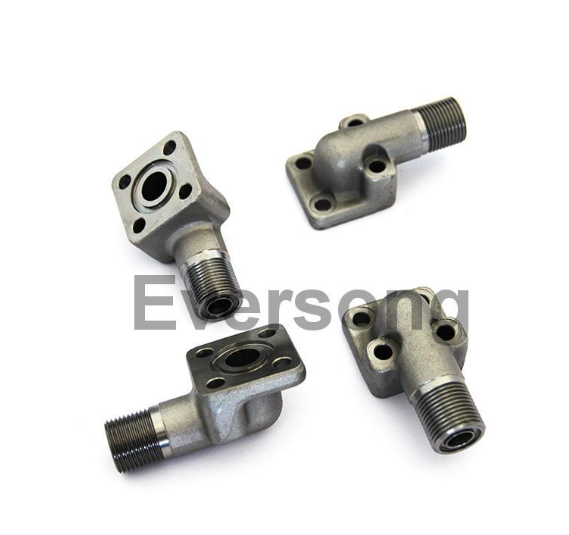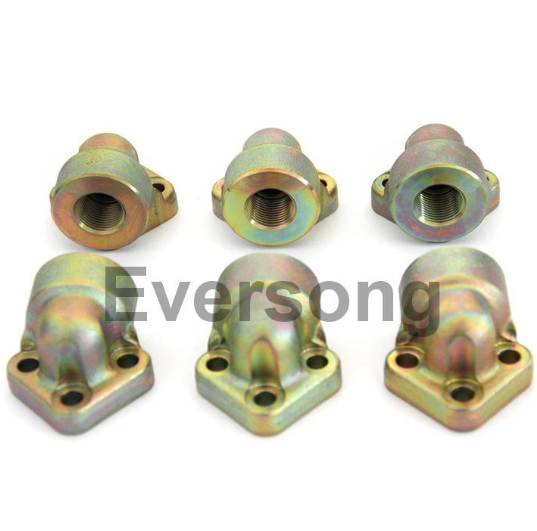
The Ultimate Guide to Choosing a Quality Pump Flange for Manufacturing and Processing Machinery
2023-11-06
Table of Contents:
1. Introduction: Understanding the Significance of a Quality Pump Flange
2. Factors to Consider When Choosing a Pump Flange
2.1 Material Composition and Durability
2.2 Flange Size and Compatibility
2.3 Pressure and Temperature Ratings
2.4 Corrosion Resistance
2.5 Ease of Installation and Maintenance
2.6 Cost and Value for Money
2.7 Supplier Reputation and Support
2.8 Customization Options
3. Frequently Asked Questions (FAQs)
3.1 What is a pump flange?
3.2 Why is it important to choose a quality pump flange?
3.3 How do I determine the correct flange size for my machinery?
3.4 Can a pump flange withstand high pressures and temperatures?
3.5 Are there any specific maintenance requirements for pump flanges?
4. Conclusion: Making an Informed Decision for Optimal Performance
Introduction: Understanding the Significance of a Quality Pump Flange
When it comes to manufacturing and processing machinery, a pump flange plays a crucial role in ensuring optimal performance and efficiency. A pump flange is a vital component that connects the pump to the piping system, allowing for the seamless transfer of fluids or gases. Choosing the right pump flange is essential to prevent leaks, reduce downtime, and maximize productivity.
Factors to Consider When Choosing a Pump Flange
1. Material Composition and Durability
The material composition of a pump flange greatly affects its performance and longevity. Opt for high-quality materials such as stainless steel or carbon steel, known for their excellent durability and resistance to corrosion. Consider the specific requirements of your manufacturing or processing environment to select a flange material that can withstand harsh conditions effectively.
2. Flange Size and Compatibility
Ensure that the pump flange size matches the pipe size and the corresponding machinery's specifications. Improper sizing can lead to leaks, inefficiency, and potential damage to the entire system. Consult industry standards and guidelines or seek the assistance of a professional to determine the correct flange size for your machinery.
3. Pressure and Temperature Ratings
Pumps used in manufacturing and processing machinery often operate under varying pressures and temperatures. It is crucial to select a pump flange with appropriate pressure and temperature ratings to ensure safe and efficient operation. The flange should be capable of withstanding the specific conditions it will encounter in your application.
4. Corrosion Resistance
Manufacturing and processing environments can expose pump flanges to corrosive substances, such as chemicals or high moisture levels. Choosing a pump flange with excellent corrosion resistance is vital to prevent degradation and ensure the longevity of your equipment. Consider factors like the flange's protective coatings or materials specifically designed for corrosion resistance.
5. Ease of Installation and Maintenance
Opt for a pump flange that offers easy installation and maintenance procedures. This includes features such as bolt-hole alignment guides, clear markings, and accessibility for inspections or repairs. Easy installation and maintenance can save valuable time and resources, minimizing downtime and maximizing productivity.
6. Cost and Value for Money
While considering your budget constraints, it is essential to evaluate the overall value for money when selecting a pump flange. Cheaper options may seem attractive initially, but they may lack the necessary quality and durability, leading to increased maintenance costs or premature replacements. Invest in a pump flange that offers a balance between cost and long-term performance.
7. Supplier Reputation and Support
Choose a pump flange supplier with a reputable track record and positive customer reviews. A reliable supplier will provide you with the necessary technical support, guidance, and timely delivery. They should also offer warranties or guarantees for their products, ensuring you have peace of mind in your purchase.
8. Customization Options
In certain cases, standard pump flanges may not fully meet your specific requirements. Consider suppliers who offer customization options, allowing you to tailor the flange to your machinery's unique needs. Customized pump flanges can enhance system performance and efficiency, providing you with a more optimized solution.
Frequently Asked Questions (FAQs)
1. What is a pump flange?
A pump flange is a mechanical component that connects a pump to the piping system, facilitating the transfer of fluids or gases.
2. Why is it important to choose a quality pump flange?
A quality pump flange ensures proper sealing, prevents leaks, and enables efficient fluid or gas transfer. Choosing a subpar flange can result in performance issues, equipment damage, and unnecessary downtime.
3. How do I determine the correct flange size for my machinery?
Consult industry standards and guidelines or seek professional advice to determine the appropriate flange size based on your machinery's pipe size and specifications.
4. Can a pump flange withstand high pressures and temperatures?
Yes, pump flanges are designed with specific pressure and temperature ratings to ensure safe and reliable operation under various conditions. Make sure to select a flange that matches your machinery's requirements.
5. Are there any specific maintenance requirements for pump flanges?
Regular inspection, cleaning, and lubrication are essential for maintaining pump flanges. Follow the manufacturer's guidelines and recommendations for specific maintenance procedures.
Conclusion: Making an Informed Decision for Optimal Performance
Choosing a quality pump flange for manufacturing and processing machinery is a critical decision that can significantly impact your equipment's performance and longevity. By considering factors such as material composition, flange size, pressure and temperature ratings, corrosion resistance, ease of installation and maintenance, cost and value for money, supplier reputation and support, and customization options, you can make an informed decision that ensures optimal performance and efficiency. Remember to seek professional advice and consult reputable suppliers who can guide you in selecting the right pump flange for your specific needs.
1. Introduction: Understanding the Significance of a Quality Pump Flange
2. Factors to Consider When Choosing a Pump Flange
2.1 Material Composition and Durability
2.2 Flange Size and Compatibility
2.3 Pressure and Temperature Ratings
2.4 Corrosion Resistance
2.5 Ease of Installation and Maintenance
2.6 Cost and Value for Money
2.7 Supplier Reputation and Support
2.8 Customization Options
3. Frequently Asked Questions (FAQs)
3.1 What is a pump flange?
3.2 Why is it important to choose a quality pump flange?
3.3 How do I determine the correct flange size for my machinery?
3.4 Can a pump flange withstand high pressures and temperatures?
3.5 Are there any specific maintenance requirements for pump flanges?
4. Conclusion: Making an Informed Decision for Optimal Performance
Introduction: Understanding the Significance of a Quality Pump Flange
When it comes to manufacturing and processing machinery, a pump flange plays a crucial role in ensuring optimal performance and efficiency. A pump flange is a vital component that connects the pump to the piping system, allowing for the seamless transfer of fluids or gases. Choosing the right pump flange is essential to prevent leaks, reduce downtime, and maximize productivity.
Factors to Consider When Choosing a Pump Flange
1. Material Composition and Durability
The material composition of a pump flange greatly affects its performance and longevity. Opt for high-quality materials such as stainless steel or carbon steel, known for their excellent durability and resistance to corrosion. Consider the specific requirements of your manufacturing or processing environment to select a flange material that can withstand harsh conditions effectively.
2. Flange Size and Compatibility
Ensure that the pump flange size matches the pipe size and the corresponding machinery's specifications. Improper sizing can lead to leaks, inefficiency, and potential damage to the entire system. Consult industry standards and guidelines or seek the assistance of a professional to determine the correct flange size for your machinery.
3. Pressure and Temperature Ratings
Pumps used in manufacturing and processing machinery often operate under varying pressures and temperatures. It is crucial to select a pump flange with appropriate pressure and temperature ratings to ensure safe and efficient operation. The flange should be capable of withstanding the specific conditions it will encounter in your application.
4. Corrosion Resistance
Manufacturing and processing environments can expose pump flanges to corrosive substances, such as chemicals or high moisture levels. Choosing a pump flange with excellent corrosion resistance is vital to prevent degradation and ensure the longevity of your equipment. Consider factors like the flange's protective coatings or materials specifically designed for corrosion resistance.
5. Ease of Installation and Maintenance
Opt for a pump flange that offers easy installation and maintenance procedures. This includes features such as bolt-hole alignment guides, clear markings, and accessibility for inspections or repairs. Easy installation and maintenance can save valuable time and resources, minimizing downtime and maximizing productivity.
6. Cost and Value for Money
While considering your budget constraints, it is essential to evaluate the overall value for money when selecting a pump flange. Cheaper options may seem attractive initially, but they may lack the necessary quality and durability, leading to increased maintenance costs or premature replacements. Invest in a pump flange that offers a balance between cost and long-term performance.
7. Supplier Reputation and Support
Choose a pump flange supplier with a reputable track record and positive customer reviews. A reliable supplier will provide you with the necessary technical support, guidance, and timely delivery. They should also offer warranties or guarantees for their products, ensuring you have peace of mind in your purchase.
8. Customization Options
In certain cases, standard pump flanges may not fully meet your specific requirements. Consider suppliers who offer customization options, allowing you to tailor the flange to your machinery's unique needs. Customized pump flanges can enhance system performance and efficiency, providing you with a more optimized solution.
Frequently Asked Questions (FAQs)
1. What is a pump flange?
A pump flange is a mechanical component that connects a pump to the piping system, facilitating the transfer of fluids or gases.
2. Why is it important to choose a quality pump flange?
A quality pump flange ensures proper sealing, prevents leaks, and enables efficient fluid or gas transfer. Choosing a subpar flange can result in performance issues, equipment damage, and unnecessary downtime.
3. How do I determine the correct flange size for my machinery?
Consult industry standards and guidelines or seek professional advice to determine the appropriate flange size based on your machinery's pipe size and specifications.
4. Can a pump flange withstand high pressures and temperatures?
Yes, pump flanges are designed with specific pressure and temperature ratings to ensure safe and reliable operation under various conditions. Make sure to select a flange that matches your machinery's requirements.
5. Are there any specific maintenance requirements for pump flanges?
Regular inspection, cleaning, and lubrication are essential for maintaining pump flanges. Follow the manufacturer's guidelines and recommendations for specific maintenance procedures.
Conclusion: Making an Informed Decision for Optimal Performance
Choosing a quality pump flange for manufacturing and processing machinery is a critical decision that can significantly impact your equipment's performance and longevity. By considering factors such as material composition, flange size, pressure and temperature ratings, corrosion resistance, ease of installation and maintenance, cost and value for money, supplier reputation and support, and customization options, you can make an informed decision that ensures optimal performance and efficiency. Remember to seek professional advice and consult reputable suppliers who can guide you in selecting the right pump flange for your specific needs.
Latest News

Contact Us
Address:151 Brunel Road ,Unit 4 Mississauga, ON , L4Z 2H6
Tel: 416 800 9632
e-mail : info@eversongflange.com
language
English
العربية
বাংলাদেশ
Български
Hrvatski
Česky
Dansk
Nederland
 Esperanto
Esperanto
Slovenski
Filipino
Suomi
Français
Maori
 Shqiptare
Shqiptare
Georgian
 Euskara
Euskara
Deutsch
Ελλάδα
ישראל
इंडिया
Magyarország
Ísland
Indonesia
Irlanda
Italia
日本語
Sovensko
Հայաստան
한국
Kyrgyz
ປະເທດລາວ
 Zulu
Zulu
Latvian
Lithuanian
Luxembourgish
 Latinus
Latinus
Macedonian
Малайская
Maltese
Монгол улс
 Cymraeg
Cymraeg
ဗမာ
 தமிழ்
தமிழ்
नेपाल
Norge
ایران
Polska
Portugal
România
Российская
Србија
 Slovak
Slovak
Србија
 Slovak
Slovak
Bosanski
Slovenian
Беларус
España
Sverige
Точик
ประเทศไทย
Türk
Azərbaycan
Uzbek
 Afrikaans
Afrikaans
Việt Nam

Company website---


